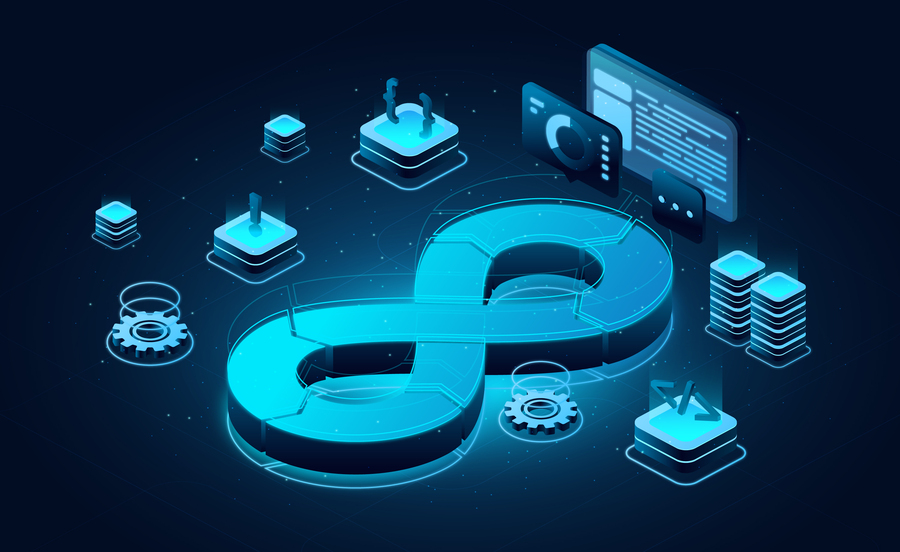
In the realm of modern software development, DevOps has become more than just a buzzword; it’s a crucial approach that integrates development and operations teams to improve collaboration, streamline processes, and deliver high-quality software faster. However, to truly succeed in DevOps implementation, organizations must recognize the importance of specific roles within their teams. In this blog post, we’ll delve into the seven key DevOps roles you need to succeed, along with strategies for increasing team efficiency and retaining valuable resources.
Increasing the Efficiency of DevOps Teams
1. Retain Valuable Resources
One of the fundamental strategies for building efficient DevOps teams is to retain valuable resources. This involves recognizing the skills and expertise of team members and providing opportunities for growth and development within the organization. By investing in training programs, mentorship initiatives, and career advancement opportunities, organizations can retain top talent and foster a culture of continuous improvement.
2. Build Cross-Functional Teams
Cross-functional teams are essential for DevOps success as they bring together individuals with diverse skill sets and perspectives. By breaking down silos between development, operations, and other departments, cross-functional teams can collaborate more effectively, identify and address bottlenecks faster, and deliver value to customers more efficiently.
3. Plan Your Recruitments
Strategic recruitment planning is vital for ensuring that DevOps teams have the right talent in place to support their objectives. Organizations should assess their current skill gaps, anticipate future needs, and proactively recruit candidates with the necessary skills and expertise. Additionally, organizations should prioritize diversity and inclusion in their hiring efforts to build more resilient and innovative teams.
DevOps Roles You Need to Succeed
1. DevOps Evangelist
The DevOps evangelist is responsible for promoting DevOps principles and practices within the organization. They serve as a champion for cultural transformation, advocating for collaboration, automation, and continuous improvement across teams and departments. The DevOps evangelist plays a crucial role in driving adoption and fostering a DevOps mindset throughout the organization.
2. Security and Compliance Engineer
In today’s threat landscape, security and compliance are paramount concerns for DevOps teams. The security and compliance engineer is responsible for integrating security measures into the DevOps pipeline, ensuring that software development and deployment processes adhere to industry standards and regulatory requirements. They collaborate with developers, operations teams, and other stakeholders to identify and mitigate security risks proactively.
3. Release Manager/Engineer
The release manager/engineer is responsible for overseeing the release process, from planning and coordination to execution and monitoring. They work closely with development, operations, and quality assurance teams to ensure that releases are delivered on time, within budget, and with minimal disruption to users. The release manager/engineer also implements release automation tools and processes to streamline the release pipeline and reduce manual errors.
4. Software Developer/Tester
Software developers and testers play a critical role in DevOps teams, responsible for designing, building, and testing software applications. They collaborate closely with other team members to ensure that software meets quality standards, performance requirements, and user expectations. In a DevOps environment, developers and testers embrace automation and continuous integration practices to accelerate the delivery of high-quality software.
5. Automation Architect
The automation architect is responsible for designing and implementing automation solutions that streamline and optimize DevOps processes. They leverage automation tools and technologies to automate repetitive tasks, eliminate manual errors, and improve overall efficiency. The automation architect also collaborates with other team members to identify opportunities for automation and implement best practices for continuous integration and delivery.
6. Experience Assurance Professional
The experience assurance professional focuses on ensuring a seamless and intuitive user experience across all touchpoints. They collaborate with designers, developers, and other stakeholders to understand user needs, identify usability issues, and implement solutions that enhance the overall user experience. The experience assurance professional also monitors user feedback and analytics to continuously improve and iterate on products and features.
7. Utility Technology Player
The utility technology player is a versatile team member who possesses a wide range of technical skills and expertise. They play a critical role in supporting various aspects of DevOps, including infrastructure management, cloud computing, and tooling. The utility technology player adapts to changing technology trends and business requirements, providing support and guidance to ensure the success of DevOps initiatives.
The Bottom Line
DevOps is more than just a set of practices or tools; it’s a cultural shift that requires collaboration, innovation, and continuous improvement. By recognizing the importance of specific roles within DevOps teams and implementing strategies to increase efficiency and retain valuable resources, organizations can position themselves for success in today’s rapidly evolving digital landscape. With the right people, processes, and technologies in place, DevOps teams can deliver value to customers faster, more reliably, and with greater innovation. And with Company like ChetsApp, which offers comprehensive DevOps solutions, teams can streamline their workflows, automate processes, and drive continuous improvement across the software development lifecycle. ChetsApp empowers DevOps teams to collaborate more effectively, deploy code with confidence, and deliver exceptional user experiences.

